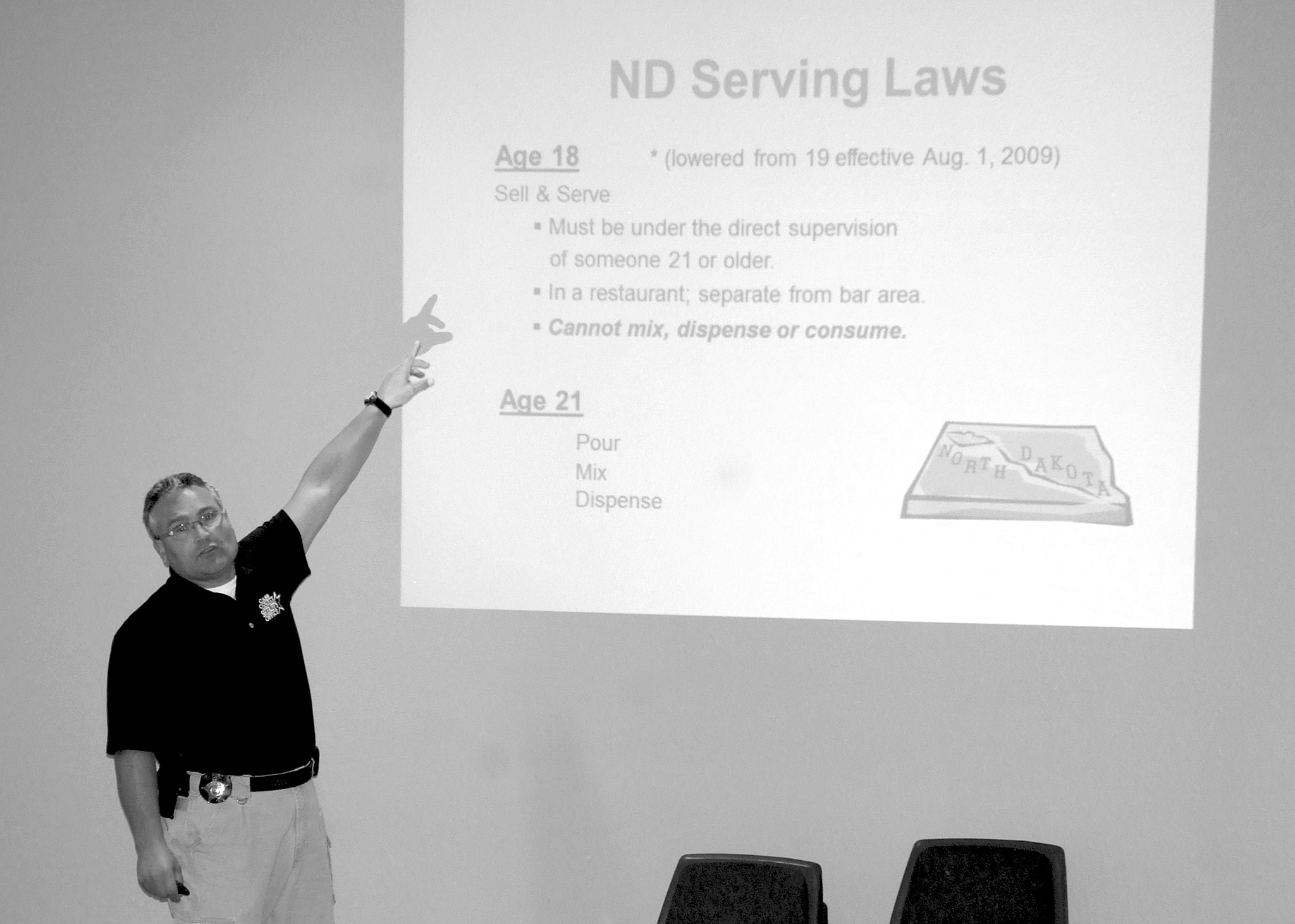News
Cass County Law enforcement presents alcohol symposium
Scott Wagar
09/10/2013

The Bottineau Community Coalition provided a server training course on Sept. 3 for individuals involved with liquor in Bottineau County. The course contained a variety of subjects to assist them in their operations when it came to alcohol.
Captain Mike Argall of the special projects division of the Cass County Sheriff’s Office conducted the symposium and spoke on six training issues, which included:
- Information about law and penalties
- Avoiding sales to minor to protect the health and well-being of everyone in the community
- Emphasis on proper management techniques and polices to encourage compliance with the law
- How to recognize false ID’s
- Detection of and intervention with intoxicated persons
- Tips on how to refuse a sale safely and comfortably
“Why should we care?” Argall said. “DUI arrests account for 25 percent of all arrests, almost half of all arrests are alcohol and drug related and alcohol is a contributing factor in 35 percent of domestic violence cases.”
Argall primarily focused on under age drinking and added that 15.2 percent of North Dakota students drove after drinking with the national average being 9.7 percent, 28.3 percent rode with a driver who had been drinking with a national average of 28.3, 46.1 percent of high school students binge drink with a national average of 26 percent and 13.5 percent of alcohol related motor vehicles fatalities were between 17 and 20 years old.
Contributing factors for youth alcohol consumption was easy access, the inconsistent enforcement of laws, alcohol advertising and promotion, lack of perceived risk and understanding of alcohol problems and poor adult modeling.
“The best thing we have right now (in solving the problem) is getting a community action group together and saying enough is enough,” Argall said.
Creating a community action group is important considering the consequences of underage alcohol use. Which Argall pointed out with the following reasons:
- Car crashes/fatalities
- Social problems
- Sexual encounter, rape and sexually transmitted disease
- Poor school performance
- Unintentional injury
- Violence
- Suicide
- Alcohol use disorder, alcohol poisoning and high tolerance
- Problem drinking and addiction
- Failure in achieving life-long goals
The largest part of the first half of the meeting dealt with information on laws and penalties and avoiding sales to minors to protect the health and well-being of everyone in the community.
One major issue that Argall focused on was adults providing alcohol for minors and the consequences behind it.
“Anytime you serve a person under 21, and you have a kegger at your house and you give it to them, and they are incompetent or intoxicated and they leave your house, your farm, your business, and they go off and get killed or kill some one else, the people, like the family of the person who gets killed, that family can go after you,” Argall said.
“If the person who is drinking kills someone else, the family of the person who dies can go after you (owner of a private home or farmstead) or a person who owns an establishment (bar, liquor store, restaurant).”
The second half of the meeting, Argall focused on how to recognize false ID’s, detection of and intervention with intoxicated persons and tips on how to refuse a sale safely and comfortably.
Overall, Argall pointed out that adults need to make sure that they do not provide alcohol to minors, and that adults need to drink safely and understand the laws on drinking and the consequences they can face with fines and jail time.
